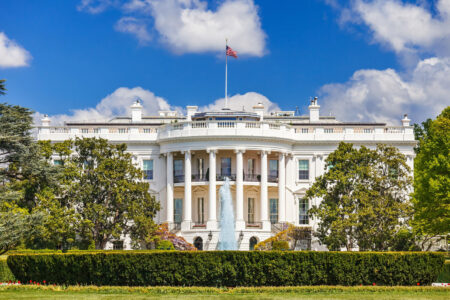The billion-dollar bankruptcy cases of the past year have caught the attention of US regulators. Led by the Securities and Exchange Commission (SEC) and backed by other agencies, crypto companies are increasingly under scrutiny. Here's an overview of the latest events and their implications.
Within a few months, the regulatory environment for crypto companies in the US has drastically tightened. Successive lawsuits against the crypto exchange Kraken, the third-largest stablecoin issuer Paxos, and Luna founding team Terraform Labs paint a clear picture: regulators are taking the situation seriously. This is not an isolated case. While the SEC is the most aggressive regulator, various members of Congress, the Fed, the Federal Deposit Insurance Corporation (FDIC), the Office of the Comptroller of the Currency (OCC), and the US Department of Justice have taken a crypto-skeptical stance.
The FTX case leaves its mark
The year 2022 will go down in the history books of the nascent blockchain technology as a year marked by the insolvencies of significant crypto service providers. The implosion of crypto hedge fund Three Arrows Capital last summer led to a serious liquidity crisis in the industry, causing a domino effect that brought down numerous providers and projects. Among those affected were billion-dollar crypto lending platforms such as Celsius Network, BlockFi, Voyager Digital, and many others.
The crescendo culminated in the implosion of the second-largest crypto exchange, breaking all previous records. FTX revealed a hole in its balance sheet of nearly $10 billion after a failed showdown with its competitor Binance and subsequently filed for bankruptcy. The shocking move was the end result of the illegal misappropriation of client funds to save the struggling hedge fund Alameda Research, also run by FTX CEO Sam Bankman-Fried (SBF). A significant bankruptcy in the US, which still affects customers, investors, and counterparties around the world to this day.
Ironically, the FTX founder lobbied for stronger regulation of the crypto and DeFi sectors in Washington for two years. Through testimony before the US Congress, private meetings with SEC Chairman Gary Gensler and CFTC Commissioner Dan Berkovitz, and millions in political donations, the self-proclaimed crypto altruist sought to gain a regulatory competitive advantage. Besides a serious loss of confidence in central service providers, also a setback for the reputation of various leaders among top U.S. regulators.
The SEC takes the helm
The regulation of cryptocurrencies in the United States was already highly debated before the FTX scandal. Various government agencies argued over jurisdiction for the rapidly growing technology and proposed different classifications. The Securities and Exchange Commission (SEC) has been advocating for the regulation of cryptocurrencies as securities for years, while the Commodity Futures Trading Commission (CFTC) views them as commodities and thus sees jurisdiction under their control. These differing views have led to conflicts between the agencies.
To partially bypass arduous debates, the SEC is now relying on "regulation through enforcement." Instead of defining clear guidelines, the agency takes direct legal action against companies that it considers within its jurisdiction. In the eyes of Chairman Gary Gensler, this jurisdiction is extremely far-reaching. The former investment banker would like to have control over cryptocurrency exchanges, stablecoins, staking services, DeFi applications, NFTs, and ultimately all cryptocurrencies except for Bitcoin.
"Everything other than bitcoin you can find a website, you can find a group of entrepreneurs, they might set up their legal entities in a tax haven offshore, they might have a foundation, they might lawyer it up to try to arbitrage and make it hard jurisdictionally or so forth. [...] But at the core, [all]these tokens are securities because there’s a group in the middle and the public is anticipating profits based on that group." - Gary Gensler in conversation with New York Magazine
Pressure from U.S. government on crypto-friendly banks
Access to the traditional banking system has always been a challenge for crypto companies. Especially in the United States, startups continue to face significant difficulties, as only a handful of boutique banks have the necessary risk appetite. However, efforts to isolate the crypto industry from the traditional banking system have intensified significantly since the FTX incident.
- Dec. 6: Three U.S. senators hold U.S. crypto bank Silvergate partly responsible for the FTX scandal.
- Dec. 7: Signature Bank cuts its crypto deposits in half (from about $20 billion to $10 billion) and shifts its focus back to the traditional financial system.
- Jan. 3: The Federal Reserve, the Federal Deposit Insurance Corporation (FDIC) and the Office of the Comptroller of the Currency (OCC) highlight the "significant risks" of cryptocurrencies to banks in a joint statement.
- Jan. 27: Federal Reserve Board rejects crypto bank Custodia's more than two-year-old application to join the Federal Reserve System.
- Jan. 27: Federal Reserve Board further restricts crypto activity for state-chartered banks
- Jan. 27: The U.S. president's National Economic Council strongly discourages banks from continuing to interact with crypto firms.
- February 2: U.S. Department of Justice initiates fraud proceedings against Silvergate over FTX and Alameda interactions.
- Feb. 8: Bank charter applications from crypto banks Protego and Paxos still pending after 18-month deadline. Rumors about a rejection in the near future start circulating.
- February 13: New York Department of Financial Services (NYDFS) forces Paxos to discontinue its third largest stablecoin Binance USD (BUSD) shortly after an SEC charge against the crypto company.
To summarize, banks that hold deposits from crypto customers, issue their own stablecoins, provide custody for cryptocurrencies, or hold cryptocurrencies as capital are currently facing significant regulatory headwinds. While none of the statements explicitly prohibit banks from serving crypto customers, the Federal Reserve's new regulations, SEC legal actions, and investigations into Silvergate are strong deterrents for any bank considering a crypto-friendly position.
Light at the end of the tunnel?
In the face of increasing regulatory pressure on the crypto industry, it is essential for industry representatives and lobbyists to advocate for their sector. These actors are responsible for engaging with policymakers and regulatory agencies to ensure a balanced regulatory framework. Otherwise, there is a risk of creating a regulatory environment that stifles innovation and significantly restricts the growth potential of the crypto industry.
Unfortunately, despite several requests, the CVJ.CH editorial team did not receive a response from any of the major crypto interest groups, while awkward appearances before the US Senate continue to cast a negative light on the industry. Fortunately, some of the largest crypto companies in the US are standing up for the sector. The Digital Currency Group (DCG) filed a lawsuit against the SEC six months ago for arbitrarily rejecting a Bitcoin spot ETF, Coinbase is preparing for a legal defense of staking services, some senators are calling for sensible regulation before Congress, and Gensler's colleague Hester Pierce is criticizing the developments from within her own agency.
"The most concerning aspect, however, is that our solution for a registration violation is the complete shutdown of a service that has been beneficial to people. [...] A paternalistic and lazy regulatory body chooses a course of action such as that in this proceeding: it does not initiate a public process to develop a workable registration scheme that provides investors with valuable information. Instead, it simply shuts it down." – Hester Peirce, one of the five SEC commissioners, on the Kraken staking ban








